10 of the Most Helpful Books That Will Make You a Better Theatre Teacher
Written by Tiffany Wilkie
October 11, 2021
Looking for books for your theatre classroom that are guaranteed to make a positive impact on your instruction skills? Look no further than this list of amazing theatre teacher textbooks suitable for middle school and high school theatre classes.
The Monologue Audition Teacher’s Manual; A Practical Guide for Actors by Karen Kohlhaas
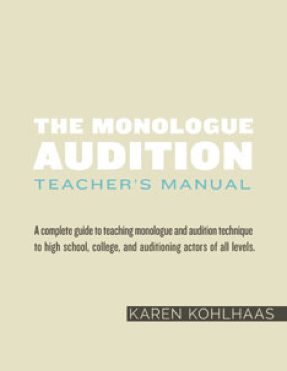
Why it’s helpful: According to Karen Kohlhass, it is the only book on monologue preparation that shows you not only how to ACT monologues specifically and truthfully without a partner, but also how to DIRECT and AUDITION with monologues, so you can build a complete and enjoyable audition.
“I read The Monologue Audition: A Practical Guide for Actors and it was a revelation to me. It helped me enormously in coaching my students for college auditions, not to mention how it inspired me as a teacher. Thank you for your insight and generosity.”
—Robert Laconi, Director, Theatre Arts Center, New York
Get the book here.
Raising the Curtain by Gai Jones
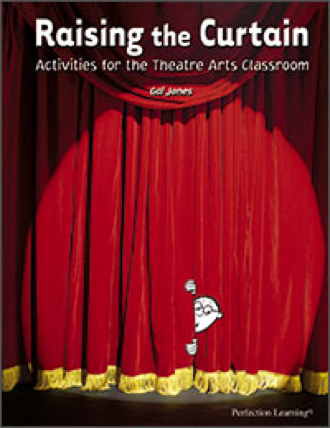
Why it’s helpful: Written for the theatre arts instructor, Raising the Curtain features hundreds of hands-on, on-your-feet activities for the novice to advanced theatre student.
Get the book here.
Introduction to Theatre Arts; A 36- Week Action Handbook by Suzi Zimmerman
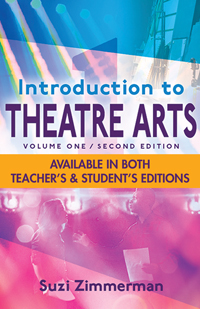
Why it’s helpful: A student-friendly, teacher-friendly workbook with study units for a full year of classroom drama activities. The entire spectrum of theatre is covered in ten sections. All units are complete with detailed instructions, examples, working forms, and photo illustrations. Students will learn all the basics of theatre history, play production, performing, and finding a career in theatre. This instructional program is classroom-tested and designed to fit the budgetary considerations of schools.
Get the book here.
Meisner For Teens; A Life of True Acting by Larry Silverberg
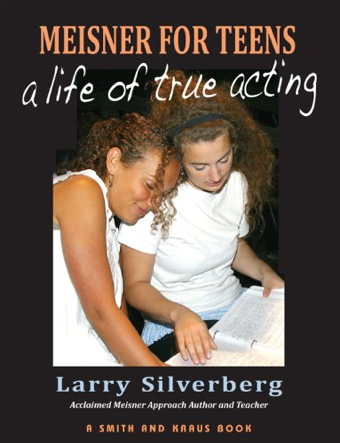
Why it’s helpful: In this workbook and acting journal wrapped in one, students keep a journal in which they define their desires and refine their skills of observation: learning to listen carefully to other people and pay keener attention to their own responses. Through dialogue work in pairs, young actors learn to engage immediately and directly with their partners. True acting develops through this increased sensitivity and fearless response to others.
Get the book here.
Technical Theater for Nontechnical People by Drew Campbell
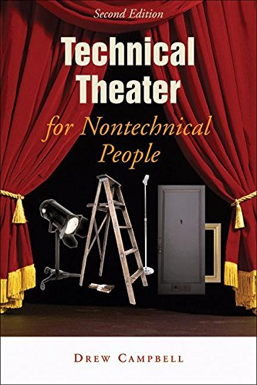
Why it’s helpful: Completely updated to reflect state-of-the-art standards in today’s fast-changing theatre technology, Technical Theater for Nontechnical People helps actors, dancers, playwrights, and directors to understand every aspect of a traditional and digitally supported backstage environment-from scenery, lighting, and sound to props, costumes, and stage management. All sides of production are clearly explained in jargon-free prose, and unfamiliar terms are highlighted and defined in an appended glossary.
Get the book here.
Drama High by Michael Sokolove
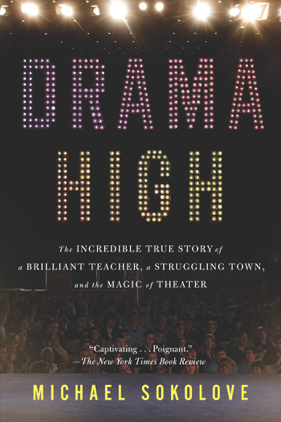
Why it’s helpful: Soon to be a television series titled “Rise,” starring Josh Radnor, Auli’i Cravalho, and Rosie Perez —the incredible and true story of an extraordinary drama teacher who has changed the lives of thousands of students and inspired a town. Why would the multimillionaire producer of Cats, The Phantom of the Opera, and Miss Saigon take his limo from Manhattan to the struggling former steel town of Levittown, Pennsylvania, to see a high school production of Les Misérables?
Get the book here.
The iTheatrics Method: The Quintessential Guide to Creating Quality Musical Theater Programs by Timothy Allen McDonald, Cynthia A. Ripley, and Marty Johnson
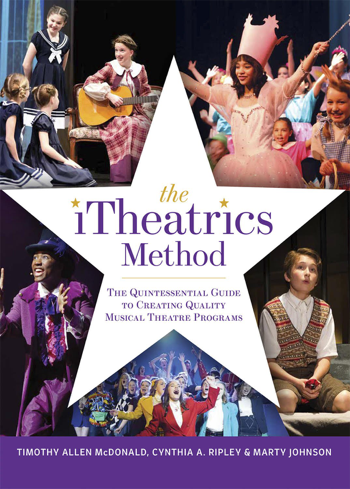
Why it’s helpful: The iTheatrics Method is the world’s first musical theatre education textbook specifically devoted to building high-quality, sustainable musical theatre programs in schools and community settings. Written in an entertaining, conversational style, and featuring hundreds of images from successful musical theatre programs all over the world, this book also includes the advice of more than 100 instructors currently working in the field. Whether you re a teacher just starting out or a seasoned professional, The iTheatrics Method is indeed your quintessential guide to creating quality musical theatre programs for students.
Get the book here.
Directing in Musical Theatre: An Essential Guide by Joe Deer
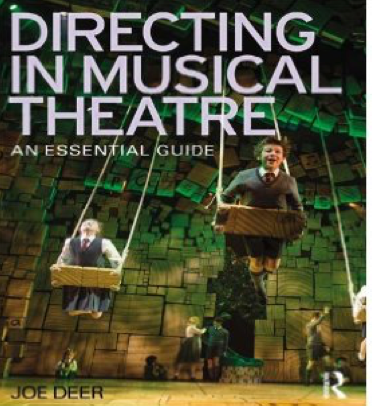
Why it’s helpful: This comprehensive guide, from the author of Acting in Musical Theatre, will equip aspiring directors with all of the skills that they will need in order to guide a production from beginning to end. From the very first conception and collaborations with crew and cast, through rehearsals and technical production all the way to the final performance, Joe Deer covers the full range.
Get the book here.
Notes on Directing: 130 Lessons in Leadership from the Director’s Chair by Frank Hauser and Russel Reich
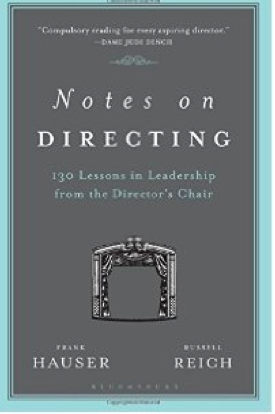
Why it’s helpful: Gathered over Hauser’s long career, and polished to a sharp edge by Reich, the 130 “Notes” address a wide range of topics, from “understanding the script” and “defining the director’s role” to casting, how to handle a first read-through of a script, rules for rehearsal, how to talk to actors, how to get a laugh, and the key elements of staging.
Get the book here.
Young Playwrights 101 by Jonathan Dorf
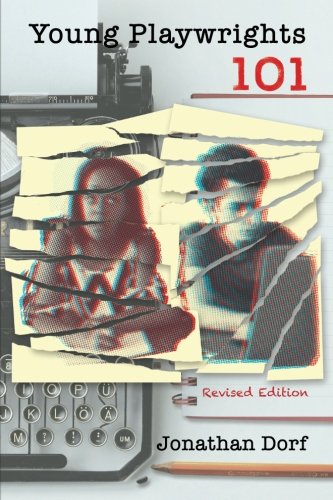
Why it’s helpful: A complete handbook for young playwrights and those who teach them, and for anyone who wants practical advice about the craft and business of playwriting. This title has now been replaced by Young Playwrights 101: Revised Edition.
Get the book here.
Need some advice? We’ve got you covered.
- 5 Theatre Games Every Drama Teacher Should Know
- 10 Basic Rules of Stage Combat (That Keep Everyone Safe)
- 5 Advantages of Learning Stage Combat
- Don’t Be a Diva: Common Pitfalls and How to Avoid Them
- 9 Articles of Clothing Every Thespian Should Keep In Their Wardrobe
- What Makes an Actor Website WOW?
- “Is my attitude not getting me roles?” And Other Essential Questions for Actors
- 6 Steps to Memorizing Shakespeare
- 10 Tricks to Staying Healthy All Season Long
- What Does It Take to Break Into Voiceovers?
- 5 Tips for Nailing Your College Music Theatre Audition
- 10 Tips on Owning the Room at Competition
- How to Balance Theatre and Coursework
- The 10 Secrets of Great Understudying
- 10 Items Every Actor Should Carry in Their Rehearsal Bag
- 10 Items Every Dancer Should Keep in Their Rehearsal Bag
